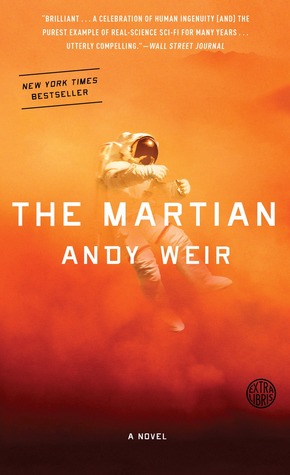
The first post here for 2017 will celebrate the final book of a horrific reading year. Perhaps I was too ambitious in my reading selections in 2016, but this book was definitely not part of the problem. The Martian is a pretty smooth read all-in-all. The science and math glide by even the most hardened liberal arts major. Compared to the movie (which is very good) there are a lot more numbers tossed around, but it never got overwhelming. For the uninitiated, the flow of the book is survival against enormous odds, and every time it seems like all is solved, another, bigger problem gets in the way. It isn't original, but it makes for exciting reading, and it's a no-brainer that they'd make a movie out of it.
Way back when I used to read science fiction magazines. For a while it was interesting, but the magazine I read was really bent toward hard science fiction, a genre that is often guilty of sacrificing plot and characters for the sake of accurate science. Frequently they would publish stories that were very dull and/or simplistic in the hope that the science would blind readers to the limitations. By a certain point (and with the help of reading other magazines) I had checked out of it and moved on to other fields. As is evident here, I still read science fiction, but it tends to be the kind that doesn't wave science around to distract from a thoughtful story.
Given my background, The Martian seemed like a step backward. Granted, the characters are pretty flat in the book. Main character Mark Watney's narrative sounds exactly like the author in an interview. On the other hand, this is the author's life work and it took years to fall into place. The plot is still solid and the pacing of the action is all done very well. Overall it's the writing that probably got me into science fiction in the first place. It proudly shows the power of human ingenuity over adversity. Whereas, I started with Asimov and the other SF greats, this wouldn't be a bad place for younger readers to start. A word of caution: there is a lot of profanity in the book. For the most part it was used as an accelerant for the humor that infuses the book, but may be too much for some. If you're on the fence, read the first page. If that's too much, then maybe stick to the movie, which sanitizes it down comfortably to PG-13 levels.
While the copy I read was the same copy my wife bought and read a few months ago, this isn't a hard book to locate at any public library.




